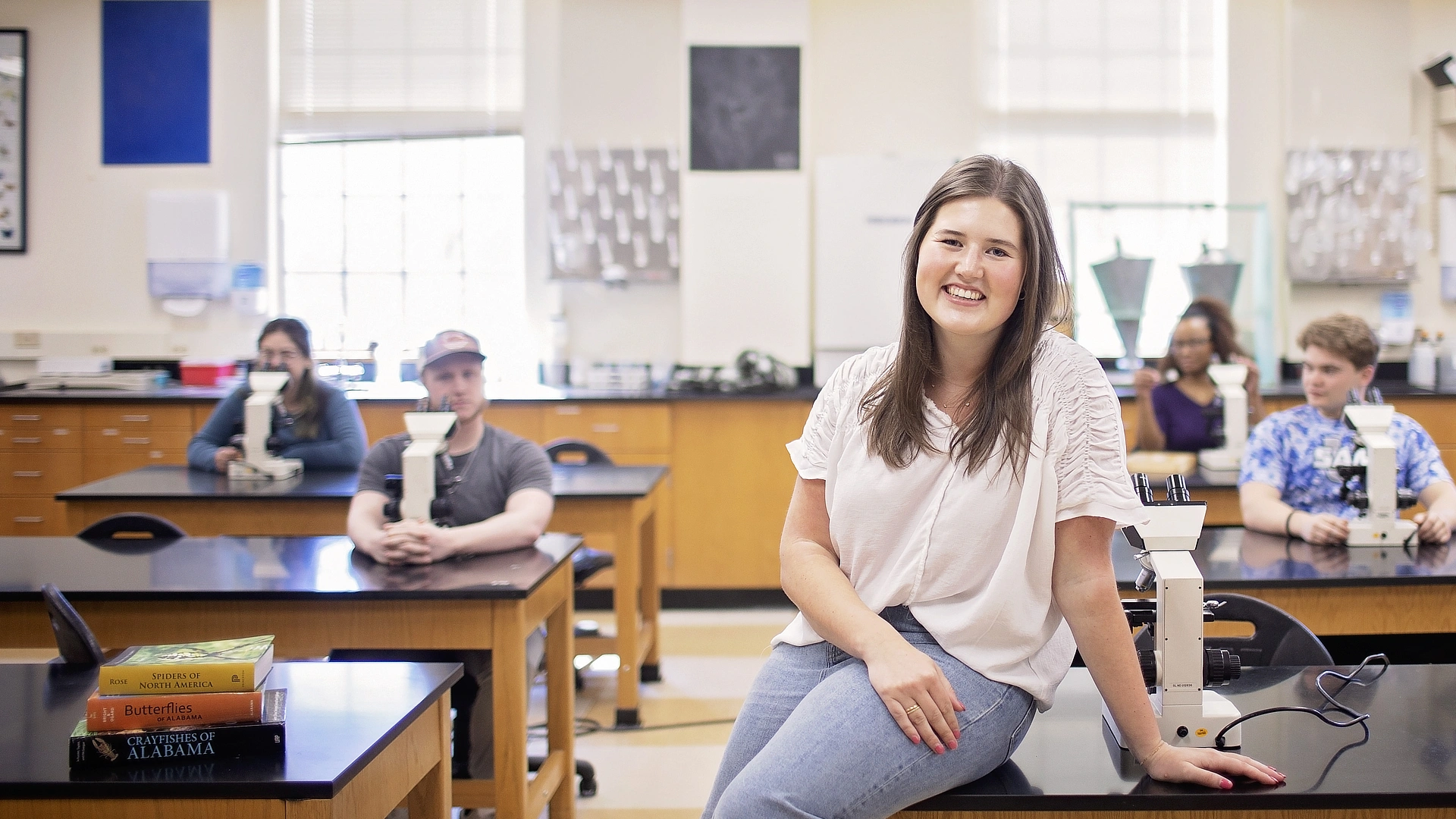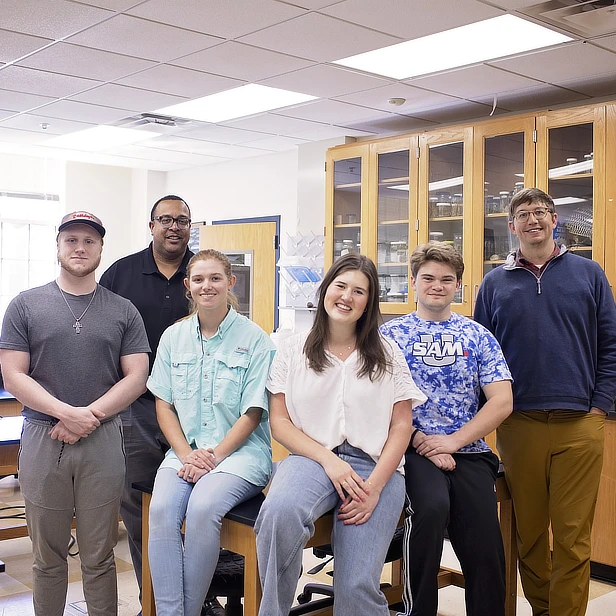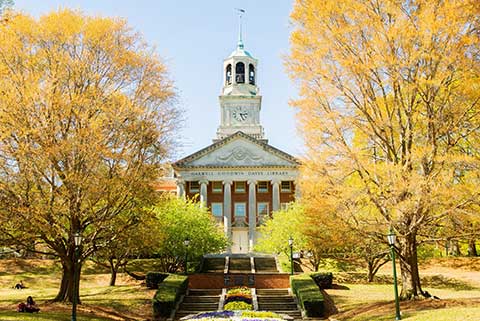Environmental Sciences Major

Is This Program for Me?
Are you passionate about protecting the natural world and improving human well-being? Do you want to address the critical environmental challenges facing today’s global society through conservation, public health, law, or policy?
Whether your interest lies in protecting endangered species, improving water quality, shaping environmental policy, or promoting public health, this program equips you with the tools to make a difference.
- Study how science, policy, and society intersect to address environmental challenges
- Prepare for careers in conservation, environmental law, public health, policy, and sustainability
- Engage in fieldwork and undergraduate research from day one
- Customize your learning through three flexible tracks: Conservation/Stewardship, Public/Occupational Health, or Policy
- Earn professional certifications, such as GIS, or pursue graduate studies through Samford’s environmental management program

What Will I Learn?
Students will
- Identify and analyze environmental issues from both scientific and human perspectives
- Evaluate environmental theories and develop data-driven solutions to complex problems
- Apply practical skills and knowledge to real-world environmental challenges
- Customize their education through one of three tracks and through additional certificates or graduate courses
“Our goal is to prepare students not only to understand the complexities of the natural world, but to engage with it—through science, stewardship, and service.
“Whether they pursue careers in healthcare, conservation, research, or public policy, our graduates leave Samford ready to make a meaningful impact.”
—Dr. Anthony Overton, Professor and Chair of Biological and Environmental Sciences
What Makes Us Different?
Three Career-Focused Tracks
Students choose from Conservation/Stewardship, Public/Occupational Health, or Policy—allowing them to tailor their education to specific career goals.
Personal Attention & Small Classes
Classes typically have fewer than 24 students, fostering close mentorship and collaborative learning.
A Rich Local Context for Environmental Study
Alabama’s extraordinary biodiversity and complex environmental history provide an ideal setting for field study and applied research.
Graduate Pathways & Certificates
Students have access to graduate-level courses and can earn professional certificates in Environmental Management or Geographic Information Systems (GIS).
Hands-On Research Opportunities
At least half of the faculty conduct environmental research—and undergraduates are actively involved in projects on topics such as water quality, species conservation, and environmental policy.
Career Preparation
Prepare to Succeed
- Hands-on lab and fieldwork
- Extensive research opportunities
- Professional mentoring by faculty
- Career and interview support through Samford’s Career Development specialists
- Preparation for graduate and professional exams (GRE, LSAT, etc.) for students pursuing law, public health, or environmental management careers
Career Opportunities
- Environmental Law
- Environmental Consultant
- Regulatory Compliance Officer
- Industrial Hygiene Manager
- Hydrologist
- Environmental Engineer
- GIS Analyst
- Wastewater Manager
- Public Health Specialist
- State Epidemiologist
- Policy Advisor
- Health Educator
- Project Manager
- Land Use Planner
- Watershed Coordinator
- University Professor or Teacher
- Environmental Advocate
- Landscape Architect
- Fire Management Specialist

Application Information
Freshman applications for next fall are open.Freshman Early Action applications close November 1st.The freshman first scholarship deadline is December 1st.Transfer applications for the spring semester close Dec. 15.Freshman FAFSA priority and scholarship deadlines are Feb. 15.Decision day is coming! Freshman applications for fall enrollment close May 1st.Transfer applications for fall enrollment close July 1st.Freshman applications for fall enrollment are closed. Applications for next year open August 1st.Transfer applications for fall enrollment are closed. Applications for next year open September 1st.
Cookie Preferences | Privacy Policy | Software Plugins
Microsoft Excel®
Microsoft Power Point®
Microsoft Word®
Adobe Portable Document Format







